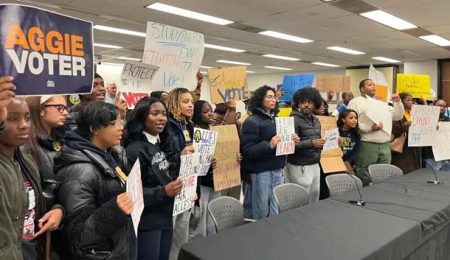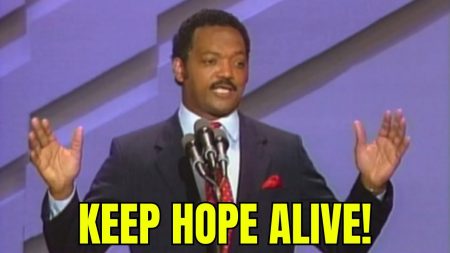Recent Voter Challenges

Photo: Urban News
By Nelda Holder
On March 27, a “voter challenge” hearing took place at the Buncombe County Board of Elections that evidenced some strengths and weaknesses in our democratic process of voting.
Local Tea Party volunteers, in conjunction with the statewide Voter Integrity Project, had conducted an investigation in 11 of the county’s 80 precincts, ostensibly to find the names of people who no longer met registration requirements.
Their proof, they said, was that letters mailed to 182 names being challenged were returned as undeliverable, and they had followed up by visiting many of the addresses where they were told the people in question no longer lived there or were unknown to current residents.
After questioning by BOE Chair Jay Watson, it became apparent that the mailing list used by the Tea Party did not come directly from the BCBOE, and that it only contained the physical addresses of the voters in question and not the separate list of mailing addresses (such as a post office box number).
It was then revealed that the local group had been supplied a list of names by the statewide Voter Integrity Project, allegedly obtained from the N.C. Board of Elections.
The Board then dismissed challenges with incorrect mailing addresses or with recent voting activity, but in the end they voted to formally challenge 95 names that staff identified as “inactive,” meaning they had not voted nor been in contact with the elections office for a lengthy period of time. The hearing for those individuals was scheduled for April 10, one day before the voter registration deadline for the upcoming May 6 primary.
It is important to note that, following current state and federal law, over half of those same 95 names were already in the process of routine verification by the BOE, and without further contact, would have been removed systematically. Thus my earlier use of the term “process.”
There was and is a considered and legally proscribed process for purging voter rolls – a systematic approach at the hands of professionals that addresses all precincts without discrimination. When a volunteer group singles out 11 precincts that – despite the group’s protest concerning their method – contain heavy concentrations of low-income or minority households, the coincidence certainly leaves the field muddy even if no footprints point to a plan.
The volunteers evidently undertook what they perceived as a hands-on approach to purging the voter roles of people whose registrations, in their minds, were questionable. But they triggered at least two unscheduled meetings of the BOE in order to deal with their challenges, cost staff time in the process, upset many residents in the targeted precincts by both the tenor of the challenge and the home investigations they undertook as a result – all when the same names would have been investigated by the office of elections through its discreet and legally balanced system.
How many other counties are experiencing targeted challenges? Why is the process mandated by law not to be trusted? And since when in America do people with no official status knock on your door to question your right to vote?
****








The selection of certain precincts is very interesting. What might have happened if this group of “concerned citizens” had selected some of the precincts with more upscale residents, say some of the gated developments that cater to part-time residents who also have homes in Florida or elsewhere?
The results may have been something the group didn’t bargain for. Several years ago the BOE in Jackson County looked at names in the very wealthy southern end of the county. Oddly enough several names showed up with dual registrations or people who had residences in NC and Florida.
Since some folks seem to be concerned with fraudulent or improper voter registrations it would make for a nice experiment if we ran a list of tax bills that were sent out of state (or county) and compared it to voter registration lists. While we’re at it we could also run a list of tax returns. Florida has no state income tax and many people continue to claim Florida as a primary residence. (Some don’t even file part-year returns as required by law).
It seems that the Voter Integrity Project is only concerned with specific constituencies. Their civic concern and involvement would be much more credible if it didn’t appear to be so targeted.
Just sayin’